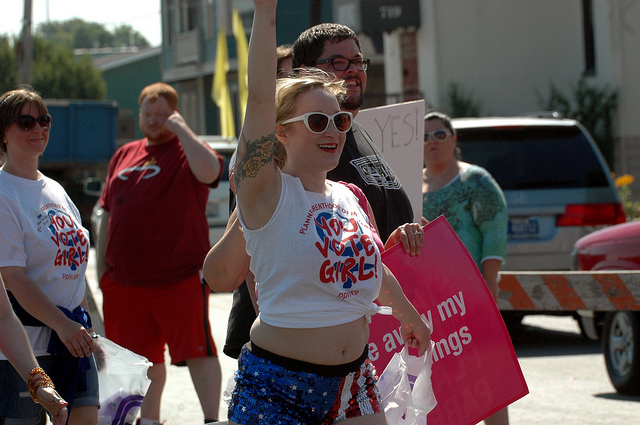
The 2018 mid-term elections are seeing more women than ever before expressing interest and taking steps to run for office. Some people suggest that this is the result of Hillary Clinton’s loss to Donald Trump, as well as a response to the numerous ways that President Trump has been criticized for his sexist behavior. One might think that this means that women will vote for female candidates in droves, but sociologists Leah Ruppanner of University of Melbourne and Kelsy Kretschmer of Oregon Sate University, along with political scientist Christopher Stout of Oregon State University, caution against such sweeping predictions in a recent article for RawStory.
Using data from the American Election study to describe relationships between marriage and behavior at the polls, the researchers find that white and Latina women who are married are less likely to see their own fates as tied to that of other women. By contrast, single white and Latina women, and black women in general, are more likely to see themselves and other women as interconnected. As a result, women who are married and feel less connected to other women are more likely to vote for conservatives, while single women and those who feel more connected to other women are more likely to vote for liberals. The researchers explain,
“Some married women perceive advances for women, such as lawsuits to mitigate pay discrimination, as coming at the expense of their male partners. In part, this captures the shift in married women’s alliances from the individual to the marital union. Women who depend on their own income are more supportive of feminist issues such as abortion, sexual behavior, gender roles and family responsibilities, which widens the political gap between single and married women.”
They discuss how marriage has been shown to alter people’s behaviors and beliefs, and they suggest that married women can think less about women’s issues such as abortion and gender norms than single women do. However, an important caveat to their findings is that they did not observe significant differences between married and single black women. The researchers warn,
“Don’t assume that married women will connect to other women based on a notion of shared womanhood. Rather, feminist messages of discrimination and sexism may be more compelling to women who shoulder disproportionate levels of inequality, poverty and job insecurity – single, divorced and black women.”

Comments